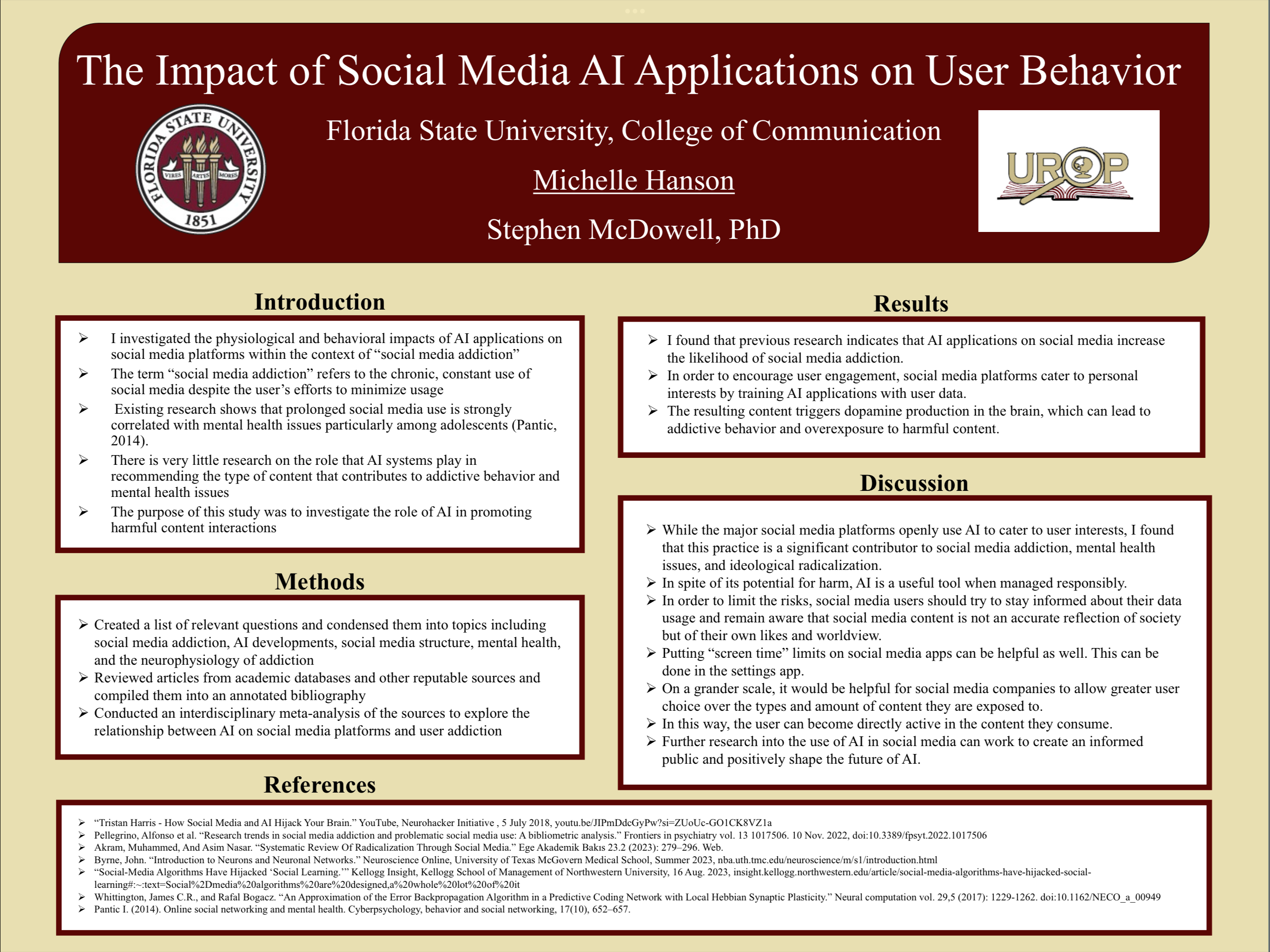Research Symposium
24th annual Undergraduate Research Symposium, April 3, 2024
Michelle Hanson She/her Poster Session 3: 1:30 pm - 2:30 pm /333

BIO
Michelle is a second-year behavioral neuroscience student with minors in chemistry and music. She has numerous academic interests within the field of neuroscience and beyond including neurophysiology, holistic medicine, Eastern spiritual practices, artificial intelligence (AI), and transcranial magnetic stimulation therapy (TMS). She is passionate about mental health and aspires to become a researcher in order to find new, effective approaches to help those with mental health issues. After graduation, she plans to travel abroad to study Eastern medicine, which she intends to incorporate into her research. Ultimately, she hopes to be able to offer streamlined, individualized mental health care to patients by bridging the gap between research findings and treatment plans. Since she is equally interested in conducting research and providing treatment, she is exploring M.D. and Ph.D. programs that would allow her to achieve both of these career goals.
The Impact of Social Media AI Applications on User Behavior
Authors: Michelle Hanson, Stephen McDowellStudent Major: Behavioral Neuroscience
Mentor: Stephen McDowell
Mentor's Department: International Initiatives Mentor's College: College of Communication and Information Co-Presenters:
Abstract
Over the past decade, the incorporation of artificial intelligence into various computer applications has skyrocketed. As a result, AI usage is now an integral part of everyday life, and it has come to change the way humans interact with technology. This study investigates AI systems on social media platforms and the impacts that such systems have on both the brain and human behavior. Previous studies have tied mental health issues to social media usage, but there is a lack of research investigating specifically how AI systems on these platforms impact user behavior. In order to explore such impacts, I conducted an interdisciplinary meta-analysis by reviewing sources on topics including mental health, developments in AI, social media structure, and the neurophysiology of addiction. While the major social media platforms openly use AI to cater to user interests, I found that this practice is a significant contributor to social media addiction, mental health issues, and ideological radicalization. In spite of its potential for harm, AI is a useful tool when managed responsibly. Further research into the use of AI in social media can work to create an informed public and positively shape the future of AI.
Keywords: Artificial Intelligence, Social Media, AI, Addiction, Psychology


